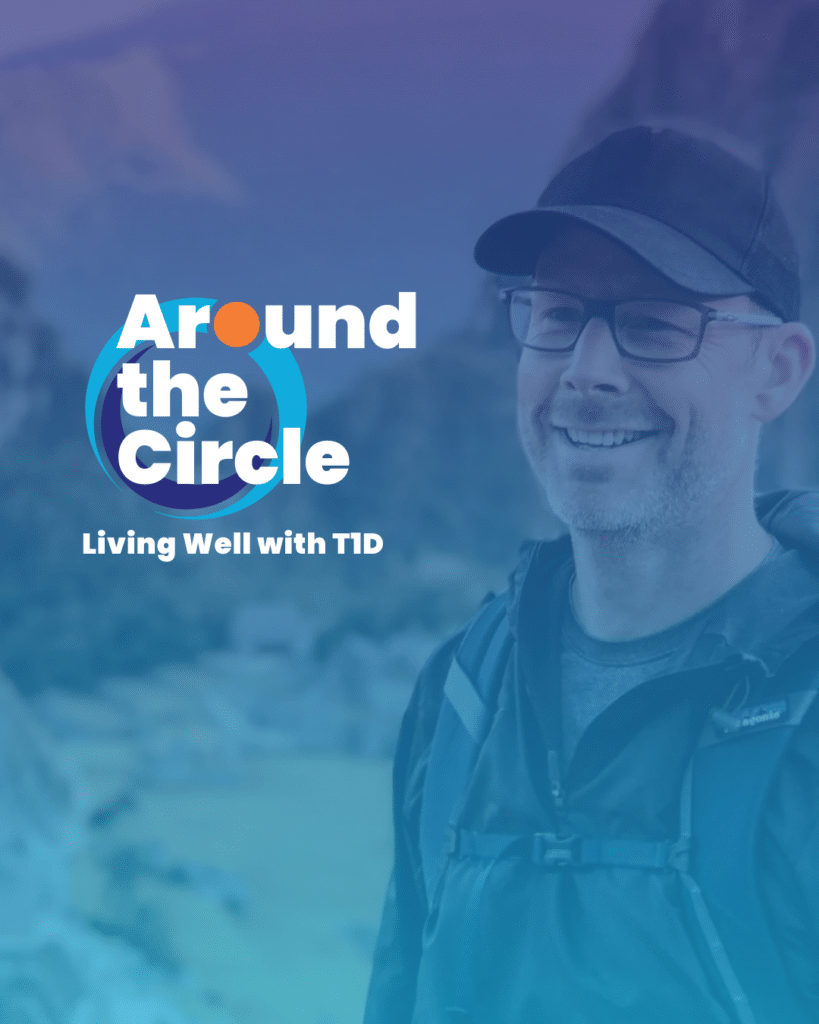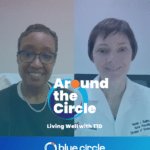Listen to this episode on Apple Podcasts, Spotify, and wherever you listen to podcasts.
If you live with type 1 diabetes (T1D), you already know it’s more than a diagnosis—it can be a daily fight. Between managing blood sugars, juggling technology, and staying prepared for the unexpected, you’re already doing the work of a full-time job. But then comes the second battle: trying to get the care, coverage, and supplies you need from a healthcare system that too often says “no.”
At Blue Circle Health, we hear these stories every day. That’s why, in our latest Around the Circle podcast, we’re tackling one of the hardest—and most universal—parts of life with T1D: navigating insurance.
Why Insurance Feels Like a Second Full-Time Job
As host Scott Johnson and guest Neil Greathouse share, figuring out coverage for insulin pumps, CGMs, and insulin can feel like decoding a secret language. Plans change from year to year, prior authorizations expire, and coverage rules shift without notice.
“It’s like a medical drama,” Neil jokes, “except you’re the one stuck in the middle of the plot twist.”
Behind the scenes, many of these decisions come down to contracts between insurance companies and device manufacturers. That’s why one brand of pump or CGM might be covered while another is denied.
“Failing First”: A backwards rule that doesn’t make sense
One of the most frustrating experiences for people with T1D is something called step therapy, or “fail first” requirements. Insurance companies often require you to fail on a cheaper medication before approving the one your doctor actually recommends.
As Neil shared, his doctor once told him he’d need to “do worse” on paper before qualifying for a CGM—despite the clear benefits.
“I thought the goal was to get better,” he said. “But the system made me feel like I had to fail first.”
This process can delay effective treatment, increase stress, and put people at risk. But it’s not hopeless—there are steps you can take.
How to Navigate Insurance
Our Blue Circle Health care team has helped hundreds of people navigate these exact hurdles. Here’s what they recommend:
- Document everything. Keep a detailed record of medications tried, how they worked, and any side effects.
- Ask your clinician to note medical necessity. The more specific the reason—like proven success with a device or integration with another tool—the better.
- Stay calm and persistent. Denials can often be overturned with additional documentation.
- Know your rights to appeal. You always have the right to challenge a denial.
And as Eleni, an advanced practice nurse at Blue Circle Health who lives with type 1 diabetes, reminds listeners:
“You did not fail. The system failed you. Keep asking, keep documenting, and keep going.”
The Hidden Costs of Prior Authorizations
Even when things should be simple—like refilling a glucagon prescription—insurance rules can throw up new barriers. When Neil’s prior authorization changed without warning, he was billed $33 for a bottle of glucose tablets instead of receiving the emergency medication he needed.
That’s not just frustrating. It’s dangerous.
Prior authorizations are meant to make sure treatments are “medically necessary,” but in practice, they often delay care and increase the emotional toll of living with T1D.
“You’re on the phone for hours,” Neil said. “And every time you think it’s fixed, the rules have already changed.”
You Don’t Have to Fight Alone
If you live in one of the states where Blue Circle Health operates, our team can help guide you through these challenges. Get the Help You Deserve
If managing T1D feels like a second full-time job, you’re not alone—and you don’t have to face it alone.Click on the sign up page to get started with our free clinical care, education, and support program today.




